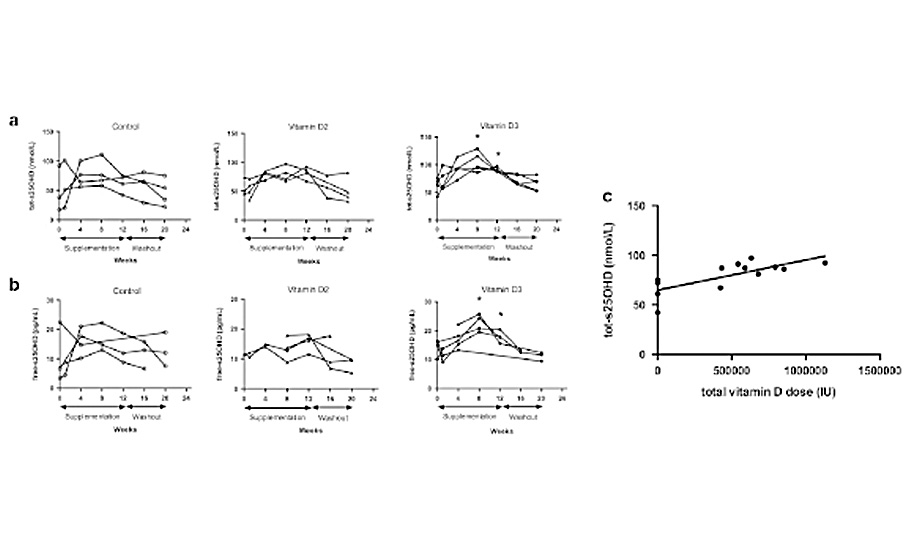Clinical impact of vitamin D treatment in cystic fibrosis: a pilot randomized, controlled trial
T Pincikova 1,2,3,4, D Paquin-Proulx 3, JK Sandberg 3, M Flodström-Tullberg 3 and L Hjelte 1,2
1 Stockholm CF Center, Karolinska University Hospital Huddinge, Stockholm, Sweden;
2 Division of Pediatrics, Department of Clinical Science, Intervention and Technology, Karolinska Institutet, Stockholm, Sweden and
3 Center for Infectious Medicine, Department of Medicine, Karolinska Institutet, Karolinska University Hospital, Stockholm, Sweden.
Correspondence: Dr T Pincikova, Stockholm CF Center, K56, Karolinska University Hospital Huddinge, 141 86 Stockholm, Sweden. E-mail: Terezia.Pincikova@ki.se
Data from the manuscript have been presented at a meeting: 36th European Cystic Fibrosis Conference, Lisbon, Portugal, 14 June 2013, Abstract WS16.3.
4 Current address: Respiratory, Allergy and Sleep Research, Uppsala University, Uppsala, Sweden.
Received 7 April 2016; revised 24 October 2016; accepted 26 October 2016; published online 14 December 2016
Abstract
Background/Objectives—Vitamin D insufficiency in cystic fibrosis is common. Vitamin D3 is currently preferred over D2. We aimed to study the efficacy of vitamin D2 and D3 at increasing serum 25-hydroxyvitamin D (s25OHD) concentrations and their effect on respiratory health in cystic fibrosis.
Subjects/Methods— Sixteen CF patients were randomized to receive vitamin D2 or D3 or to serve as controls. The starting dose of 5000 IU (o16 years old) or 7143 IU/day (⩾16 years old) was further individually adjusted. Three months of intervention were followed by two of washout (ClinicalTrials.gov NCT01321905).
Results— To increase s25OHD, the mean daily dose of vitamin D2 and D3 had to be increased up to 15650 and 8184 IU, respectively. The combined group of vitamin D2 and D3 treated patients decreased plasma IL-8 (Po0.05). Patients provided vitamin D3 improved FVC at the end of the trial (Po0.05). Change in s25OHD was positively correlated with changes in the adult Quality-of-Life respiratory score at the end of supplementation (P = 0.006, r = 0.90), and with changes in FEV1 (P = 0.042, r = 0.62) and FVC (P = 0.036, r = 0.63) at one month of washout.
Conclusions— Vitamin D supplementation may contribute to reduced inflammation and improved lung function in CF.
European Journal of Clinical Nutrition (2017) 71, 203–205; doi:10.1038/ejcn.2016.259; published online 14 December 2016 (…)







